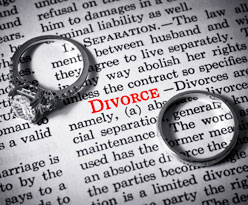Equitable Distribution for Pre-Marital Cohabitation

Recently, a New Jersey couple that disputed the distribution of a salary bonus the husband received after their divorce is raising questions about equitable distribution for couples that had lived together before marriage.
In this case, the couple lived together for eight years before marrying. After 14 months of marriage, they divorced with a settlement that waived equitable distribution for any property acquired after the divorce. After the divorce, the husband received a $2.25 million-dollar bonus. The wife then withdrew more than $200,000 from an account both parties still retained access to. Subsequently the husband sued to regain the money.
The case went to trial court wherein the judge awarded the wife $30,228 based solely upon the length of the marriage, not for the time they were living together. An appellate panel upheld the trial court ruling. In September 2016, the New Jersey Supreme Court heard oral arguments for the case, ruling that the wife is entitled to a portion of the husband’s bonus earned while during the couple’s cohabitation.
Though the wife pursued equitable distribution for the entire bonus, the Court found she was only entitled to a percentage of the total bonus based on the period the couple lived together. The Court found that the wife’s domestic contributions throughout the couple’s entire relationship allowed the husband to dedicate considerable time to his career. Her support at home combined with his performance at work ultimately resulted in the successful sale of the company he worked for and the sizeable bonus he received.
Influential to the Supreme Court’s decision was an e-mail prior to the couple’s marriage, in which the husband acknowledged the wife’s decision to give up her career to stay home and raise the couple’s child. He also agreed, in writing, to support the wife fully in the future in return for this sacrifice.
The couple’s property settlement agreement stated the couple would evenly divide assets acquired during cohabitation and marriage, but made no mention of assets acquired in the future. However, the Court found that both parties considered the potential compensation received from the sale of the company in making decisions for their family, and the sale was a direct result of effort from both parties.
In this ruling, the New Jersey Supreme Court noted that the state’s equitable distribution statute does not treat property acquired during cohabitation the same as property acquired during marriage. A trial court is assigned the task of determining exactly what portion of the bonus the wife will eventually receive. The Court’s decision may change the way couples in common law marriages are viewed under the law and how they distribute property after a divorce. Consulting a skilled divorce lawyer is a good idea for long-term couples who are unsure about how to divide assets.
Somerville Divorce Lawyers at Lyons & Associates, P.C. Tackle Tough Divorces
The division of marital property is a complicated process. Per the Supreme Court’s ruling, couples that live together for a significant period before marriage may have more at stake than previously thought. An experienced Somerville divorce lawyer at Lyons & Associates, P.C. is available to help you navigate New Jersey’s divorce laws, ensuring that you receive the best resolution possible in matters of property division, child custody, and alimony. Call our Somerville, New Jersey offices at 908-575-9777 or contact us online to discuss your situation. We proudly serve clients throughout New Jersey.


